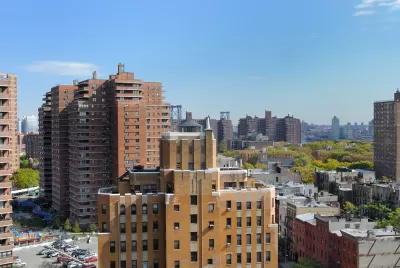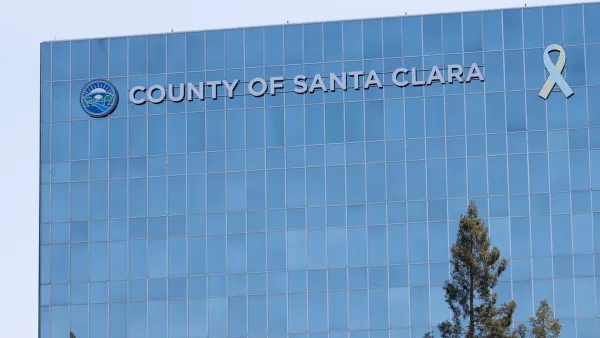Upzoning efforts, while hugely controversial, often make only a small impact on housing supply, particularly in the short term. Could a return to government-built housing be the solution?

Around the country, cities are struggling to stop a growing housing crisis through developer incentives and rezoning efforts that encourage more housing production. But Daniel Denvir and Yonah Freemark write that “the typical effects of upzoning are rather modest, especially in the short term.” Writing in Slate, Denvir and Freemark argue that perhaps policymakers should look to “an obvious but long-taboo solution: building new public housing.”
The concept of public housing gained a notorious reputation reputation in many U.S. cities thanks to misguided (or outright discriminatory) policies and underresourced projects that failed to meet the needs of their residents. But this is starting to change, according to the authors.
Generally thought of as only for the very poor, government-funded and publicly owned housing—sometimes called social housing—would guarantee affordable housing for people across income ranges by adding to the national housing supply and offering new opportunities for vibrant, mixed-income neighborhoods.
The authors point to proposals that create a new model for public housing that differs from past models in key ways. “First, it would largely be funded at the state and local level. Second, the housing is intended not just for the very poor, but rather for a wide swath of residents, which could compliment public subsidy to finance more construction.”
One U.S. example exists in Montgomery County, Maryland, where “the Housing Opportunities Commission quietly initiated a program to build mixed-income public housing that uses a cross-subsidy financing system: the market rents paid by more affluent tenants to subsidize affordable units in the same building.” And subsidizing public housing is one of the best uses of government funds, the authors claim. “By generating jobs in construction, public housing development acts as a countercyclical stimulus measure, boosting employment in a critical sector with significant multiplier effects across the entire economy.”
FULL STORY: Just Build the Homes

Maui's Vacation Rental Debate Turns Ugly
Verbal attacks, misinformation campaigns and fistfights plague a high-stakes debate to convert thousands of vacation rentals into long-term housing.

Planetizen Federal Action Tracker
A weekly monitor of how Trump’s orders and actions are impacting planners and planning in America.

San Francisco Suspends Traffic Calming Amidst Record Deaths
Citing “a challenging fiscal landscape,” the city will cease the program on the heels of 42 traffic deaths, including 24 pedestrians.

Adaptive Reuse Will Create Housing in a Suburban Texas Strip Mall
A developer is reimagining a strip mall property as a mixed-use complex with housing and retail.

Study: Anti-Homelessness Laws Don’t Work
Research shows that punitive measures that criminalized unhoused people don’t help reduce homelessness.

In U.S., Urban Gondolas Face Uphill Battle
Cities in Latin America and Europe have embraced aerial transitways — AKA gondolas — as sustainable, convenient urban transport, especially in tricky geographies. American cities have yet to catch up.
Urban Design for Planners 1: Software Tools
This six-course series explores essential urban design concepts using open source software and equips planners with the tools they need to participate fully in the urban design process.
Planning for Universal Design
Learn the tools for implementing Universal Design in planning regulations.
Heyer Gruel & Associates PA
JM Goldson LLC
Custer County Colorado
City of Camden Redevelopment Agency
City of Astoria
Transportation Research & Education Center (TREC) at Portland State University
Jefferson Parish Government
Camden Redevelopment Agency
City of Claremont





























